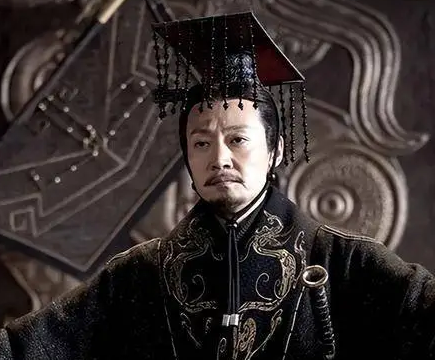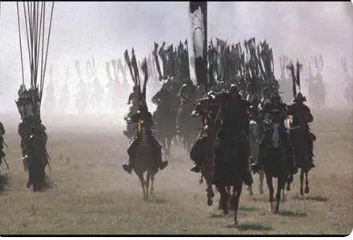In Chinese history, the story of Lu Buwei and Ying Zheng has always been celebrated. Lu Buwei, a famous politician of the Qin State, once assisted the young Ying Zheng in ascending the throne. However, why did Lu Buwei prevent Ying Zheng from ruling the country when he grew up? Was there a hidden ambition of Lu Buwei to take Ying Zheng's place? This article will unveil the mysterious veil of this period of history.

Firstly, Lu Buwei's Political Wisdom. Lu Buwei was a renowned politician of the Qin State, whose political wisdom and strategy were unparalleled at that time. When Ying Zheng was young, Lu Buwei assisted him in ascending the throne and became the actual ruler of the Qin State. However, as Ying Zheng grew up, Lu Buwei chose to let him continue as a puppet emperor while he himself held the real power. This was largely due to Lu Buwei's deep understanding of his political status and influence, as well as Ying Zheng's character and abilities.
Secondly, Ying Zheng's Character and Abilities. Although Ying Zheng ascended the throne as the emperor of the Qin State when he was young, his character and abilities were not well regarded. According to historical records, Ying Zheng had a timid personality, was not good with words, and was easily influenced by others. This made Lu Buwei concerned that if Ying Zheng were to rule the country, the political situation of the Qin State might descend into chaos. Therefore, Lu Buwei chose to continue holding the real power to ensure the stability and development of the Qin State.
Thirdly, Lu Buwei's Ambition. There is no clear historical record regarding whether Lu Buwei had ambitions to replace Ying Zheng. However, based on Lu Buwei's political wisdom and strategy, it is likely that he was seeking greater benefits for himself. By controlling Ying Zheng, Lu Buwei consolidated his political status and influence, forming a powerful force within the Qin State. This force not only allowed Lu Buwei to firmly grasp the power of the Qin State, but also provided him with powerful support in future political struggles.
In conclusion, the reason why Lu Buwei did not allow Ying Zheng to rule the country was mainly due to his deep understanding of Ying Zheng's character and abilities, as well as his own political status and influence in the Qin State. Although we cannot be certain whether Lu Buwei had ambitions to replace Ying Zheng, based on his political wisdom and strategy, it is likely that he was seeking greater benefits for himself. This period of history is filled with power struggles and intellectual battles, showcasing the wisdom of a politician navigating complex political environments in pursuit of survival and development.
Disclaimer: The above content is sourced from the internet and the copyright belongs to the original author. If there is any infringement of your original copyright, please inform us and we will delete the relevant content as soon as possible.































